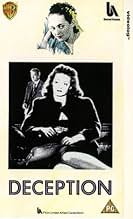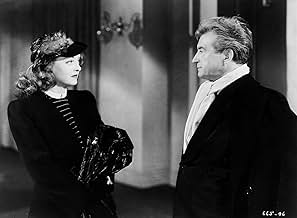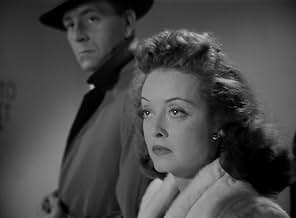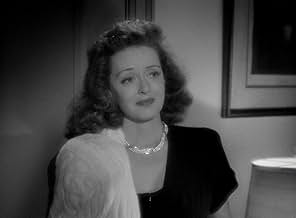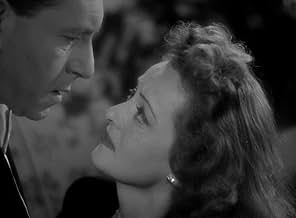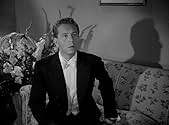IMDb RATING
7.0/10
4.5K
YOUR RATING
After marrying her long-lost love, a musician finds the relationship threatened by a wealthy composer who is besotted with her.After marrying her long-lost love, a musician finds the relationship threatened by a wealthy composer who is besotted with her.After marrying her long-lost love, a musician finds the relationship threatened by a wealthy composer who is besotted with her.
- Director
- Writers
- Stars
- Awards
- 4 wins total
John Alban
- Concertgoer
- (uncredited)
Russell Arms
- Music Student
- (uncredited)
Lois Austin
- Norma - Wedding Guest
- (uncredited)
Patricia Barry
- Music Student
- (uncredited)
Brandon Beach
- Concertgoer
- (uncredited)
Lulu Mae Bohrman
- Restaurant Diner
- (uncredited)
Paul Bradley
- Concertgoer
- (uncredited)
James Carlisle
- Restaurant Diner
- (uncredited)
Gertrude Carr
- Wedding Guest
- (uncredited)
James Conaty
- Well-Wisher at Concert
- (uncredited)
Marcelle Corday
- Hat Check Woman
- (uncredited)
Gino Corrado
- Waiter
- (uncredited)
Suzi Crandall
- Music Student
- (uncredited)
- Director
- Writers
- All cast & crew
- Production, box office & more at IMDbPro
Featured reviews
I have just finished reading all of the comments here and now let me add my two cents worth. This is my all time favorite Davis opus and it is certainly not because of the high quality of her performance. See Davis at her best in The Letter. What Deception is is a high powered duel between flamboyant personalities (Davis and Rains) wiping their costar (Henreid) right off the screen. The restaurant scene deserves all the mention it got here previously, but how about mink coated Bette confronting Rains in his bed reading Dick Tracy? The screen crackles with vitriol. This is over the top screen acting at it's most enjoyable.If you've never seen this, take the opportunity and enjoy it for what it is: good old fashioned Hollywood entertainment.
How did I never come across Deception (1946) before? It's got to be Claude Rains' most delicious role. He absolutely has a blast playing the grand, tyrannical, jealous composer who hates giving Bette up to Paul Henreid, her former lover who has just returned from Europe at the end of the war. Both men are wickedly jealous of each other. The scene where the great composer unexpectedly arrives at Bette's and Paul's festive wedding party at her great loft apartment overlooking the river in New York (modeled on Leonard Bernstein's apartment) and trades poisonous banter with Bette and Paul makes the movie worth it by itself. But every scene is a gem, such as the scene where Claude takes them to a haute cuisine French restaurant and spends 10 minutes going back and forth over whether to order pheasant, trout, or saddle of lamb and whether to go with a Hermitage or a Vosne Romanee wine. This is some of the sharpest, wittiest dialogue I've seen in a movie, rivaling Ernst Lubitsch and every bit as good as in All About Eve. Oh, and I forgot to mention the amazingly good symphony performance scenes, with an original cello concerto by Korngold, ("played" by Henreid with the arms of two real cellists reaching in from either side to play the instrument). And Bette, a trained pianist, playing Beethoven at her wedding party (she really wanted to play it herself but Jack Warner decided against it but you can see she knows what she's doing in fingering the keys). If you haven't seen it, do check it out.
If you're in the mood for a flamboyant Bette Davis-Claude Rains melodrama, you've got to see this one. Rains all but steals the film as the genius composer with some of the cruelest and wittiest lines ever uttered by this talented actor. Bette matches him with a finely controlled display of emotions and Paul Henreid is altogether convincing in a rather thankless role as her ex-lover who re-enters her life and incurs the wrath of Rains. For the cello concerto, Erich Wolfgang Korngold provides a robust, darkly thrilling piece of work that gets the full treatment toward the climax of the story. A very satisfying look at Davis and Rains at the peak of their powers. I love the comment by Cecilia Ager of PM who wrote: "It's like grand opera, only the people are thinner. I wouldn't have missed it for the world." If you're a Claude Rains fan--and there are MANY, MANY of them out there--you might have read my profile on his career in CLASSIC IMAGES, a long article with many photos that appeared in the December 2000 issue.
One of the few actors of Bette Davis' time who could match her screen intensity was Claude Rains. Paul Henreid is paired with Davis as her true love for another convincing romance. But, the script-stealing scene is between Davis and Rains. Matched penultimately perfect for the picture, Davis and Rains match each other's most intense acting skills during a major bedroom blow-out between them. I live to watch that scene over and again for its acting mastery.
Since Deception is about three classical music artists, the classical music score makes Deception's choice script musically enhanced to a classy degree. I love how Rains takes "the 4th Warner Brother's" acting intensity and levels it with his own. Even Bogie couldn't do that when staged with Davis! Don't miss this tightly wound triangulation with Henreid underplaying himself as his role calls for.
Since Deception is about three classical music artists, the classical music score makes Deception's choice script musically enhanced to a classy degree. I love how Rains takes "the 4th Warner Brother's" acting intensity and levels it with his own. Even Bogie couldn't do that when staged with Davis! Don't miss this tightly wound triangulation with Henreid underplaying himself as his role calls for.
Deception (1946)
A marvelous chamber piece, in a way, involving orchestral music. The cast begins with two principals, played with usual intensity by Bette Davis and with usual restraint by Paul Henreid. This broods a bit and suggests trouble, and then comes the third player, who outdoes them both, in the form of Claude Rains. The rest of the movie is an interplay between the three, a push and pull and game of dodging and, of course, deception.
So how to judge this kind of tightly woven enterprise? It feels as though William Wyler could have directed it, so polished and rich it all is. But this is a Warner Brothers drama, so there is another kind of layer of dark danger, and of a noir inspired lighting and camera-work. This visual aspect, in a way, is the real star of the film, which says a lot, considering the high level of acting involved.
In all it's purely an entertainment, but at the highest level. The backdrop of classic music and classical musicians hasn't worn well over the years, but I grew up with this kind of scene and it brought back a lot of those vibes. A terrific movie within its own genre.
A marvelous chamber piece, in a way, involving orchestral music. The cast begins with two principals, played with usual intensity by Bette Davis and with usual restraint by Paul Henreid. This broods a bit and suggests trouble, and then comes the third player, who outdoes them both, in the form of Claude Rains. The rest of the movie is an interplay between the three, a push and pull and game of dodging and, of course, deception.
So how to judge this kind of tightly woven enterprise? It feels as though William Wyler could have directed it, so polished and rich it all is. But this is a Warner Brothers drama, so there is another kind of layer of dark danger, and of a noir inspired lighting and camera-work. This visual aspect, in a way, is the real star of the film, which says a lot, considering the high level of acting involved.
In all it's purely an entertainment, but at the highest level. The backdrop of classic music and classical musicians hasn't worn well over the years, but I grew up with this kind of scene and it brought back a lot of those vibes. A terrific movie within its own genre.
Did you know
- TriviaPaul Henreid could not play the cello. While he was able to fake it in the long shots, to achieve the illusion in closeup, he wore a special jacket with no sleeves and holes for two real cellists to insert their arms - one to bow, and one to accurately finger the music - while seated behind him, out of shot.
- GoofsWhile Christine, alone in her studio, is talking to Alexander Hollenius on the telephone, the highly visible shadow of a crew member is moving back and forth across the piano behind her.
- Quotes
Alexander Hollenius: [snatches his bleeding hand away from Christine] Like all women - white as a sheet at the sight of a couple of scratches... calm and smiling like a hospital nurse in the presence of a mortal wound... Good night!
- ConnectionsEdited into Dead Men Don't Wear Plaid (1982)
- SoundtracksHollenius' Cello Concerto
Music by Erich Wolfgang Korngold
Performed by Paul Henreid (dubbed by Eleanor Slatkin)
- How long is Deception?Powered by Alexa
Details
- Runtime
- 1h 55m(115 min)
- Color
- Aspect ratio
- 1.37 : 1
Contribute to this page
Suggest an edit or add missing content




